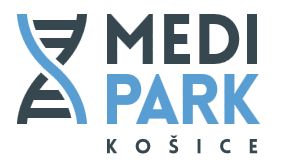In January 2020, the Pavol Jozef Šafárik University expressed in its letter its interest in introducing HRS4R at UPJŠ to the European Commission (EC), and committed itself to the EC to adhere to the principles adopted by the EC in March 2005 in the form of the European Charter for Researchers and Code of Conduct for the Recruitment of Researchers.
The Charter and the Code summarize the roles, responsibilities and rights of researchers and employers and research funding organizations in order to improve working conditions and professional development opportunities for researchers across Europe, and thus contribute to the making of the environment more attractive to top researchers from around the world. The documents are instruments for harmonising work environments so that a mobile and qualified group of people would be able to find the same working conditions anywhere in Europe. The Charter and the Code include 40 principles related to four fields of human resource management in research. These principles also represent recommendations issued by the Commission to the Member States, who are called on to exercise them voluntarily.
Employers who have adopted the Charter and the Code undertake to act responsibly and professionally towards their employees. The employers also undertake to provide equal treatment and transparency in their recruitment procedures, ensure fair conditions for researchers, and actively contribute to the development of the European Research Area.
The Human Resources Strategy for Researchers (HRS4R) serves as an instrument of practical implementation of the Charter and the Code.
The Pavol Jozef Šafárik University supports the recommendations of the European Commission, which contain the European Charter for Researchers and the Code of Conduct for the Recruitment of Researchers through the implementation of the project “Human Resources Strategy in Research at UPJŠ”
At the same time, UPJŠ undertakes, in accordance with its internal regulations and the university’s policy, to further develop its internal human resources strategy, adhering to the recommendations and principles set out in the Charter and the Code, to ensure transparency, accessibility, fairness and excellence in the recruitment of researchers.
Within the framwork of the “Strategy of human resources in research at UPJŠ” project we at UPJŠ:
- set up a project team that manages and coordinates activities and tasks,
- conducted a questionnaire survey among the employees and PhD students of the university,
- created expert commissions that analyzed the current state in the field of human resources management at UPJŠ,
- compilated HRS4R documents: a GAP analysis, an action plan, an Open Transparent and Merit Based Recruitment (OTM-R) form.
Project Team:
- doc. Ing. Silvia Ručisnká, PhD. – Project Manager
- RNDr. Ing. Michal Tkáč, PhD. – Finance Manager
- Mgr. Mária Vasiľová, PhD. – Coordinator
HRS4R questionnaire survey at UPJŠ
The aim of the HRS4R survey was to map the perception of the scientific environment at UPJŠ in Košice.
The survey was designed for the following categories of employees:
- PhD students and assistants,
- assistants with PhD. and researchers,
- associate professors and independent researchers,
- professors and senior researchers.
We would like to thank all the employees, who participated in the survey at UPJŠ. We will gradually inform you about the results of the survey. All the suggestions that emerged from the survey were incorporated into the GAP analysis and action plan.
Survey Report is available in Slovak language. Please be patient, if you cannot find the English version. We are working on it at the moment. In order to ensure and improve the bilingual environment at our university for the students and university staff members as stated in the university’s HRS4R Action Plan (Action 18), UPJŠ is working on the translation of all its key documents. The documents will be uploaded gradually. Here is the document with the summary information on the survey and its respondents.
463 employees and PhD students took part in the university-wide survey, all faculties and relevant workplaces of the university were involved. Most of the respondents belonged to the categories of assistants with PhD and PhD students.










